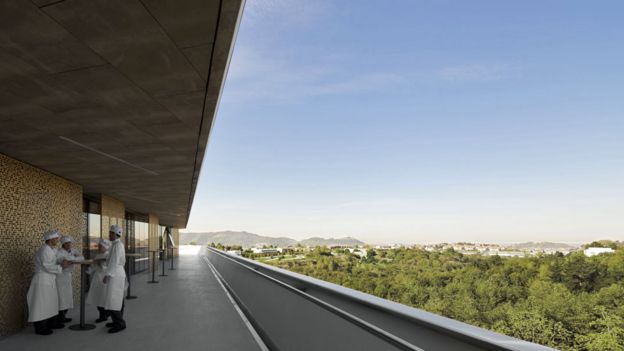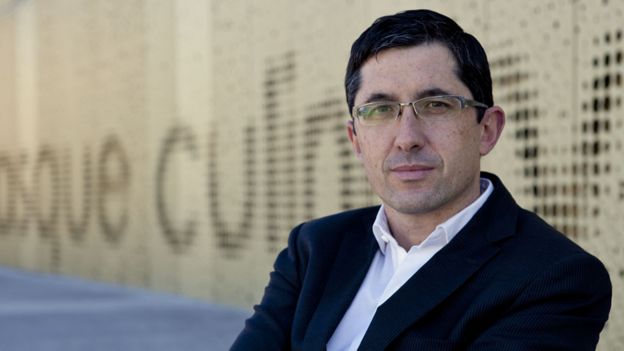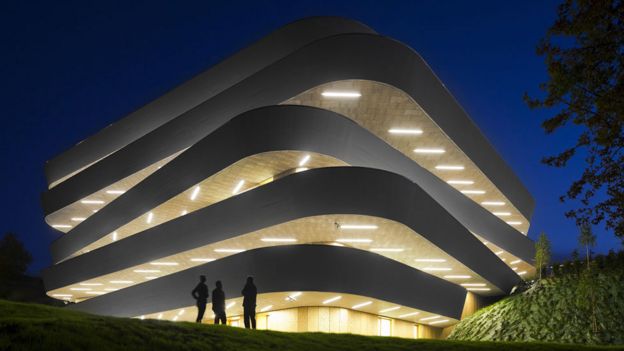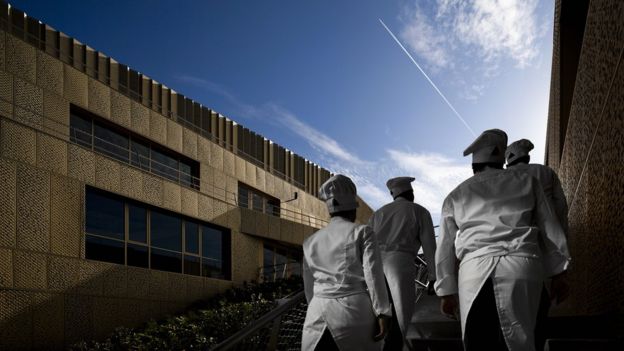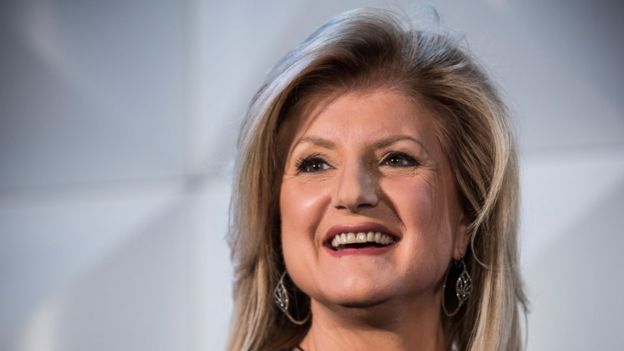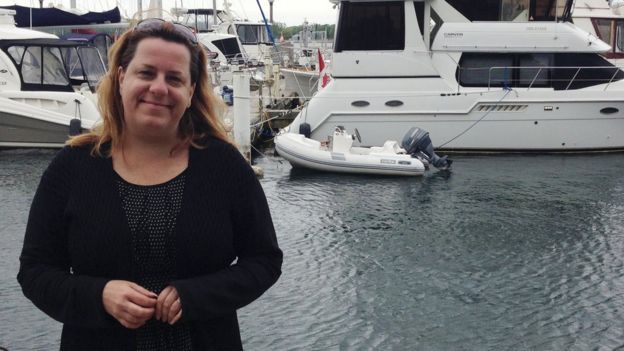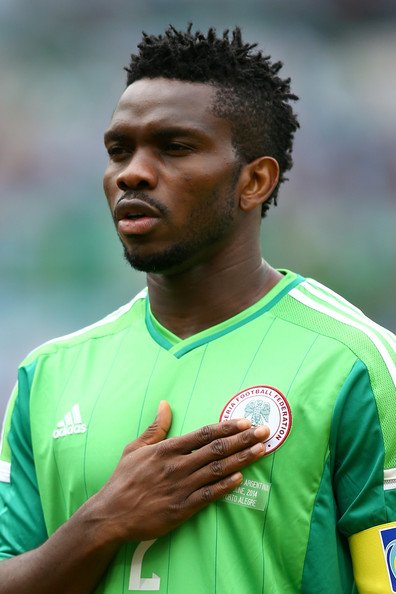For years, the government paid militants in the Niger Delta not to blow
up oil pipelines. Now it’s cutting them loose — and they’re taking up
arms once again.

WARRI, Nigeria — Every attack on an oil pipeline leaves Felix
Timileami feeling as if he’s on top of the world. The 39-year-old, who
belongs to a recently formed — and as of yet unnamed — militant group,
has taken part in raids on a number of oil facilities in the Niger
Delta. Last month, they hit one operated by Royal Dutch Shell.
“It’s the only means to vent our anger and to draw the world’s
attention,” says Timileami, who hails from the Delta city of Warri.
For six decades, the people of this swampy southern region have
been the sore losers in Nigeria’s scandalous game of crony capitalism.
Oil worth billions of dollars is pumped directly through communities
here, but residents see almost none of it. For most of the 2000s, an
insurgency fueled by bitter resentment claimed thousands of lives and,
at its height, cut Nigeria’s oil production in half. Now, after a brief
respite, it is beginning to re-emerge.

Seven years after an amnesty agreement persuaded most militants to
put down their weapons in exchange for monthly stipends — and in some
cases, contracts to guard the same pipelines they used to bomb — the
Niger Delta, a region of more than 20 million people, is suddenly
sliding back into chaos. This month, a militant group calling itself the
Niger Delta Avengers has already
claimed
three separate attacks on oil installations and promised to cut the
country’s oil output to zero. The Ijaw Youth Council, an influential
grassroots organization that has its roots in the armed struggle of the
2000s and advocates for local control of natural resources,
said last week that the security situation is “rapidly deteriorating and getting out of control.”
At issue is President Muhammadu Buhari’s perceived abandonment of the
region. Already viewed suspiciously in the Delta because he is a Muslim
from the north, Buhari has courted trouble by slashing funds for the
amnesty program and revoking some of the security contracts. When he
abruptly called off his first planned presidential visit to the region
last week, people saw it as proof that he does not care about Christians
in the south of the country.
“The body language of the president does not favor us at all,” Eric Omare, a spokesperson for the Ijaw Youth Council, told
Foreign Policy.
“But we in the Niger Delta have oil and gas pipelines in our backyards.
So when we are angry, we can attack the pipelines and that will force
the federal government to pay attention because we are affecting the
national economy.”
The Niger Delta produces 90 percent of the country’s commercial crude
and accounts for roughly 70 percent of government revenue. The total
dollar amounts are staggering. According to OPEC, Nigeria made
$77 billion from oil exports in 2014 — and that was a low year. The U.S. Department of Energy
says
Nigeria’s oil export earnings hit $99 billion in 2011. (The figures
were $94 billion and $84 billion for 2012 and 2013, respectively.)
In the communities of the Niger Delta, there is a feeling that these mind-boggling profits belong to the people here.
Oil money, people feel, is a birthright. They say God blessed them with oil and they deserve to reap its wealth
Oil money, people feel, is a birthright. They say God blessed them with oil and they deserve to reap its wealth.
Instead, they have borne the costs of environmental degradation while
the benefits have largely passed them by. Much of the wealth, which is
supposed to flow back to the states from the federal government, is
simply siphoned off. A recent federal government audit
showed
that the state-owned Nigerian National Petroleum Corp. (NNPC) failed to
pay $16 billion in revenue that it owed to the state treasury in 2014
alone. (NNPC officials disputed that figure, claiming it was closer to
$1 billion.) The revelation came after then-Central Bank Gov. Lamido
Sanusi
accused
the NNPC of failing to pay $20 billion to the federal government
between January 2012 and July 2013. (Sanusi was immediately suspended
after making the accusation and eventually forced out of his job.)
The discovery of oil in 1956 forever changed the face of the Niger
Delta. Located in the southernmost part of Nigeria, it is the largest
mangrove swamp in Africa and the third largest in the world. Its dense
forest and complex labyrinth of creeks and waterways breathes life into
over 339 plant species and more than 100 species of birds and fish. Tall
palm trees with thick branches stretch upward before bending to touch
the water below. The natural wonder stretches for miles and miles, but
today it’s only a fragment of what it once was.
A burgeoning population coupled with rapid urbanization has swallowed
much of the mangrove, which is being reclaimed to create more habitable
land. Meanwhile, multinational oil companies have dredged the swamp to
build pipelines, disturbing the delicate saltwater and freshwater
balance, eroding banks, and depriving the roots of plants and trees of
vital nutrients. Oil spills have clogged the soil and contaminated just
about every community in the Delta, contributing to myriad health
problems, including cancer.
The list of environmental mishaps reads like a criminal record. Royal
Dutch Shell, one of many multinational oil companies pumping crude from
the troubled region, has
admitted to 1,693 oil spills since 2007. (Advocacy groups like Amnesty International
claim
the figure is much higher.) In just one of those spills, in 2008,
100,000 barrels seeped into the Ogoni Land region of the Delta.
Thousands of hectares of mangroves were damaged, and 69,000 people were
affected. Four months later, Shell was responsible for another spill
that further devastated Ogoni Land.
For the Niger Delta communities that rely on farming and fishing, the
environmental damage has been catastrophic. All told, the United
Nations
says
it could take 25 to 30 years and at least $1 billion to clean up
pollution from more than 50 years of oil operations here. But the
government has done little to help the region bounce back.
Countless studies reveal that access to water, electricity, health facilities, jobs, and education remain limited. A 2006
report
from the United Nations Development Programme highlights
“administrative neglect, crumbling social infrastructure and services,
high unemployment, social deprivation, abject poverty, filth and
squalor, and endemic conflict.” The report goes on to call the Delta one
of the world’s starkest examples of the “resource curse.”
This is why Timileami and his fellow militants are destroying
pipelines again. The son of a retired soldier and a petty trader,
Timileami participated in the last insurgency here in the mid-2000s. “We
wanted to make Nigeria fall to its knees,” he says.
Hundreds of young people in the Niger Delta shared the same ambition.
For a decade ending in 2009, they attacked oil infrastructure and
kidnapped oil company workers for ransom. Nigeria’s crude oil output
dropped by nearly 50 percent and the militants, collectively known as
the Movement for the Emancipation of the Niger Delta (MEND), brought the
nation’s economy to a virtual standstill. It was during this period
that the Ijaw Youth Council was founded as a civilian counterpart to
MEND, documenting local grievances and advocating for greater autonomy.
All told, thousands of people were agitating for change in the Niger
Delta, some through nonviolent protest, some through militancy, and some
by aiding militants.
Teenage girls cooked for MEND fighters, cleaned their guns, and
served as lookouts. Whole communities took part in the struggle against
the Nigerian government, which ended only after the Ijaw Youth Council
helped broker an amnesty agreement that covered some 30,000 Niger
Deltans. These former militants and their family members began
collecting monthly stipends of 65,000 naira — then, roughly $400 — from
the government. Some received scholarships for foreign study or
vocational training. Others landed lucrative contracts to secure oil
installations or target illegal refineries, some
reportedly worth as much as $100 million.
Suddenly, it paid to be a former militant, and warlords became
superstars in the Niger Delta. One of them, still known by the name he
used during his MEND days, Pastor Reuben, lives in a palatial mansion in
Rivers State with gold-plated furniture. Another, Ateke Tom, bought two
lions that he keeps in a house “far away” because he’s “afraid of
them,” he says.
But the high life is winding down for the former militants. A frugal disciplinarian, Buhari
slashed
the budget for the amnesty program by about 70 percent and yanked some
of the security contracts. He has also scrapped a plan to build a new
university in the Niger Delta. As a result, resentment is building in
the region. Some people say Buhari is retaliating against communities
that voted overwhelmingly for his opponent in the 2015 election.
Timileami is one of those people. He voted for former President
Goodluck Jonathan, a native son of the Delta, and sees Buhari’s
presidency as a threat to his livelihood. Before the election, he was
dismantling illegal refineries as part of a contract offered through the
amnesty program. But then his monthly government stipend became
irregular; he soon went back to the way of the gun. He says he will
continue hitting pipelines until Buhari “comes to his senses.”
The recent wave of attacks has contributed to a gradual reduction in
oil output
— from 2.2 million barrels per day at the beginning of the year to
between 1.5 million and 1.6 million per day — that has cost Nigeria its
claim as Africa’s largest oil producer. (It has fallen behind Angola.) A
major port has been closed because of the violence, along with two
refineries.
Buhari has responded by
announcing
a deployment of troops to the Delta. In a May 29 address marking the
end of his first year in office, he finally offered to “engage” leaders
in the region and pledged to restructure the amnesty program. But he
also implied that his military would continue to use force against those
targeting oil installations. “If the militants and vandals are testing
our resolve, they are much mistaken,” he said. “We shall apprehend the
perpetrators and their sponsors and bring them to justice.”



